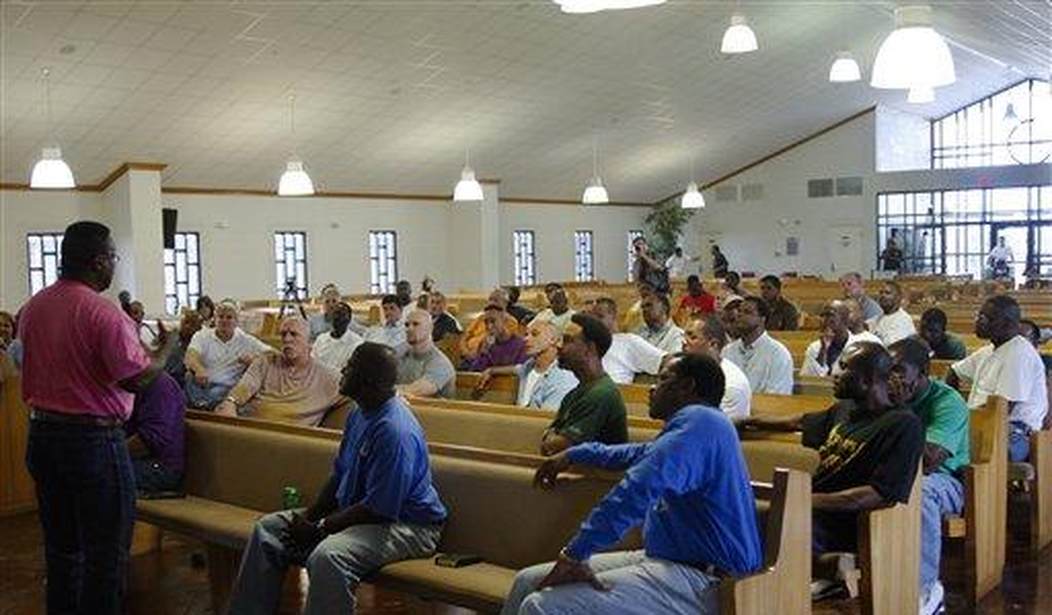Christmas is a bit tricky for Christians this year. Because of the cyclical nature of the Georgian calendar, Christmas Day will fall on a Sunday. In response to this periodic quirk, many churches are canceling weekly worship services because of Christmas.
This is not satire. The New York Times reports that, according to a survey by Lifeway Research, only 61 percent of nondenominational evangelical pastors will conduct church services on Christmas Day.
The Times article quotes Lutheran Pastor Laura Bostrom saying, “For me, there was a theological decision but also a practical decision,” in deciding not to conduct worship services on Christmas.
Bostrom recalled that very few people attended Sunday services on December 25, 2016, the last time Christmas fell on a Sunday. According to the Times, it didn’t seem right to her “to get home at 9:30 and have everyone wake up and say we have to do this again for such low attendance.”
The Times also quotes StoneBridge Christian Church Executive Pastor Mitch Chitwood, who told the newspaper, “We have to meet people where they are. And where they are on Christmas Day is usually at home in their pajamas.”
Nothing in the Bible instructs us to celebrate Christmas on December 25 (or any day at all for that matter), but that is what Christians have done for nearly 1,700 years. In contrast, we have been called to gather and observe the Sabbath, which is Sunday in Christendom, for roughly 3,500 years.
The net net is that this year, an alarming number of Protestant ministers are consciously forsaking the Lord’s Day, prescribed by God when he gave Moses the 10 Commandments, because they fear low attendance. Is it just me or does this sound nuts?
Recommended
Christianity in America faces plenty of threats, most coming from the political Left, and ideologues who despise God and the people who worship him. But this particular threat - canceling worship services because Christmas happens to fall on a Sunday - is coming from the Protestant clergy itself.
This year, Christmas Eve services will be held on Saturday night, and church pews will be filled with people holding tiny candles and singing Silent Night, wanting to experience this connection with the Christian faith. But on Sunday, Christmas Day, many people will want to spend their morning opening presents, precluding their attendance at Sunday worship services.
This is unsurprising. People go to church when they want to go to church, and the fact that they go at all is a good thing. But pastors have a higher calling which presumably includes leading their congregation in abiding by God’s commandments and millennia of biblical instruction. Since when did we start cancelling church just because of low attendance on a particular Sunday?
I’ve been going to church long enough to know that attendance ebbs and flows. It typically dips around Memorial Day, July 4, Labor Day and other holidays that entice people to take long weekends away from home.
As a boy growing up in rural Minnesota, I remember church attendance dropping off a bit when the Vikings were playing an early game on the road against an NFL rival on the east coast. The opening of deer season was also cause for decreased church attendance. In spite of these distractions, we still had church on Sunday.
Church ministers have a difficult job. It’s not easy being shepherd to a flock of Christians, and parishioners need a lot of pastoral care so they’re never really off the clock. This includes preparing for Sunday services, which is labor intensive for a lot of churches. Whether they be small mission churches that share a physical space for services or mega-churches with sophisticated audio/video systems and thousands of chairs, it’s hard work.
But if there is one duty above all that pastors are called to do, it is to conduct Sunday worship services. Of course there are legitimate reasons to cancel church; blizzards, ice storms and natural disasters can and do result in church closures from time to time. Arbitrary government edicts also closed a lot of churches during the COVID pandemic.
Local pastors aren’t responsible for the appetites of power hungry politicians any more than they are responsible for the weather or the rhythm of the calendar. But they are responsible for how they react to such events. Canceling worship services because Christmas falls on a Sunday drips with irony and must surely delight critics of Christianity. They are laughing at us because a subset of Christian ministers is doing their work for them.
Christmas won’t fall on a Sunday again until 2033. Over the next 11 years, more churches may come to realize the importance of conducting Sunday worship despite the fact that it coincides with celebrating the birth of Christ. They might if enough people have this conversation with their pastors.

























Join the conversation as a VIP Member